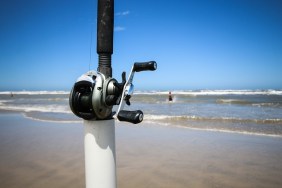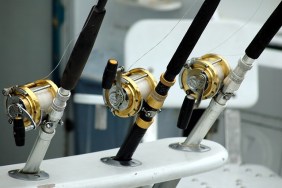 In Part One of this series, we explored some of the common neglectful errors that anglers make concerning the care of their reels, or lack thereof. By not taking care of your fishing reel or cleaning it regularly, you pretty much set it up to degrade and completely fail you on the water. Today, we’ll wrap up with Part Two and take a look at a few more things to avoid when your reel is concerned.
In Part One of this series, we explored some of the common neglectful errors that anglers make concerning the care of their reels, or lack thereof. By not taking care of your fishing reel or cleaning it regularly, you pretty much set it up to degrade and completely fail you on the water. Today, we’ll wrap up with Part Two and take a look at a few more things to avoid when your reel is concerned.
I can’t tell you how I badly I detest the sound of someone engaging the reel in the middle of a cast. I literally cringe every time it happens. To be honest, this is probably the most damaging single event that can happen to a reel, but it’s also one of the most difficult habits to break. In the middle of a cast the spool is traveling so fast that if the pinion gear is suddenly engaged, it can cause a great amount of damage. When you engage the reel in mid-cast, the pinion gear tries to connect the spool to the drive shaft and it’s at this point that something has to give. Thankfully, the pinion gear usually takes the brunt of the stress. I say thankfully only because it’s the least expensive part to replace out of all the parts that may get damaged.
Sigh, don’t use motor oil as a lubricant for your reels. I can’t stress this enough. It sounds like a great idea, I know, but motor oil is way too heavy for the micro bearings in your reels. I fact, it will actually cause your reels degrade in performance and your casting distance will be greatly shortened. Also, because it is so heavy, this type of oil will gather dust and debris much faster, causing excelled damage over a shorter period of time.
If your reel is making a funny noise, that means something is wrong, and continuing to cast with it will only damage it further, leading to costly repair bills that will be more money than the reel is worth. If you have decent hand-eye coordination and some basic knowledge of reel maintenance, you can fix many common reel issues yourself. Otherwise, it’s smart to take it to a professional and have it serviced. More often than not if you act quickly the repair is very simple and not very expensive at all.
The lesson is this: pay attention to how your reel sounds and feels during use and don’t ignore any strange performance issues should they appear. Also, like your car, have your reel cleaned and serviced regularly to avoid any potential long-term damage. You’d be surprised at some of the crazy things people put their reels through during a given season, only to have their reel fail on them on the water. Don’t count yourself as one of them and take the tips outlined in this series to heart.








